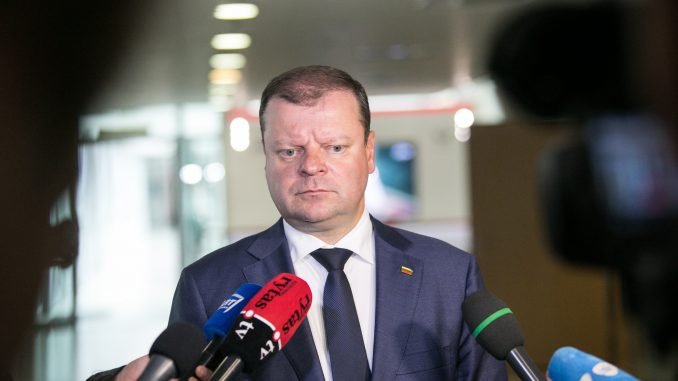
“This bill should be corrected and will be corrected. MP Vytautas Bakas has already registered a very logical amendment, proposing to very clearly define people engaged in politics, including lawmakers, members of the government and MEPs. When such people stand in elections, the public has to know about their past,” Skvernelis told BNS Lithuania on Thursday.
Earlier in the day, the Seimas of Lithuania backed an initiative by the opposition Electoral Action of Poles in Lithuania – Christian Families Alliance to disclose now classified information on former agents of the Soviet KGB who have voluntarily admitted their collaboration.
The VSD says the publication of the names of former KGB collaborators would pose threat to Lithuania’s security and pave the way for Russia’s blackmail.
The prime minister shares the VSD’s view and guarantees the existing bill would definitely not be adopted.
“If such a version was adopted, I really share the department’s position on threats, but the bill will really be corrected and there won’t be complete disclosure. Such a bill will definitely not receive backing in the initial stage,” Skvernelis said.
VSD representative Aurelija Katkuvienė says Russia now has a major part of archives but does not know which people have already admitted their collaboration and which have not. Therefore, such a law would give Moscow an opportunity to blackmail those who have not admitted their former KGB collaboration.
She also added that former KGB collaborators who have admitted their past activity have been instructed on how to protect themselves from possible influences.
A report by Lithuanian intelligence institutions showed in March that Russian intelligence services are using Russian archives on classified information about former KGB collaborators in Lithuania while recruiting Lithuanian citizens.
Under the proposed bill, the names of people who have voluntarily admitted to have collaborated with the KGB, now classified as a state secret for 75 year, would be revealed as of Jan. 1, 2019.
Meanwhile former KGB agents who failed to admit their collaboration by the set deadline voluntarily have already been disclosed by the Lustration Commission.
A law that came into force in 2000 allowed former workers of and collaborators with the Soviet KGB and other special services to voluntarily admit the fact by a certain deadline and register with a special commission, and that information was classified. Those who failed to admit their KGB past faced disclosure and certain professional restrictions.
After a deadline for voluntary admission was set, 1,589 people turned to the Lustration Commission and admitted their past collaborations with the Soviet secret services.
Based on the remaining KGB documents, around 118,000 people are estimated to have collaborated with the KGB in Lithuania in 1940-1991.
Historians say a part of the KGB archives in Lithuania could have been destroyed, and a significant part of them were taken to Russia.
